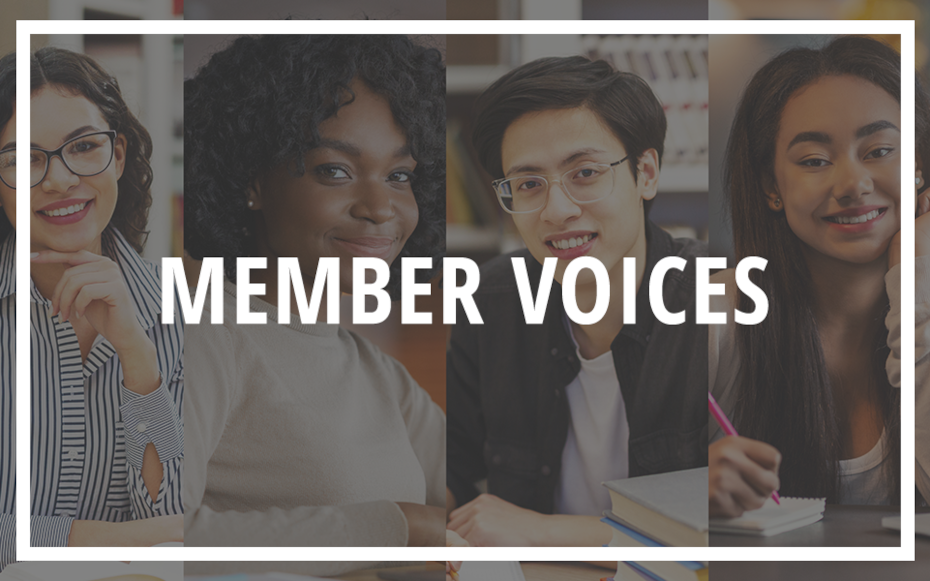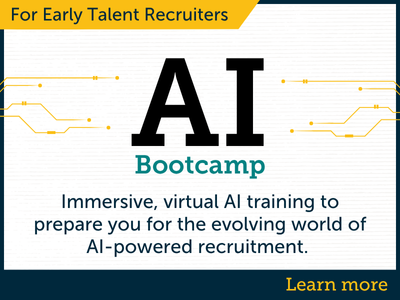Many emerging professionals are turning to community colleges, vocational schools, and technical bootcamps to gain marketable skills. When defining “nontraditional college students” as students who attend schools other than traditional four-year institutions after graduating high school, we can see that more students have begun embracing this “nontraditional” approach due to a variety of factors, and collectively, these nontraditional students have the power to shift the corporate status quo and drive innovation, flexibility, and more compassionate leadership to the forefront of business practices. However, many employers still focus on students from four-year institutions when designing their hiring and onboarding practices. Below are five simple measures employers may take to drive a more inclusive work environment while promoting well-being, work-life balance, and loyalty.
1) Mentorship
Many nontraditional students have not received the professional exposure to the industry in which they’re studying. Mentorship is a free, yet highly effective, vehicle to gain insight and share knowledge. Mentors provide mentees a safe space to ask questions, as well gain real world advice from industry professionals. It also provides an opportunity to network and learn of potential opportunities.
2) Internships and Apprenticeships
Where mentorships can provide industry knowledge, internships and apprenticeships give students real-world experience and the opportunity to contribute their talent to impactful projects. Many of these programs include a bevy of professional development opportunities that help students hone skills like storytelling, personal branding, and public speaking. Internships and apprenticeships are also wonderful ways to encourage wholistic growth and development.
3) Sponsorship
In corporate jargon, sponsorship occurs when a more-senior associate attests to the ability or potential of a junior associate that they’ve personally mentored, or they’ve witnessed the junior associate’s work and/or potential. Outside of job opportunities, employers can also deploy traditional means of sponsorship to encourage access to tools and resources that they may not otherwise be able to garner.
Employers can make a tremendous impact by investing in what will encourage job readiness for soon-to-be graduates. This includes purchasing software and the necessary licenses for a duration of time; sourcing specialists and subject matter experts to teach and train students on topics that directly relate to their prospective fields; and/or subsidizing certifications and trainings that can give students a leg up on the skills they need to succeed in their respective careers.
4) Accommodations
Many nontraditional college students have competing priorities, such as working full-time jobs while serving as caretakers to their families. Employers should apply empathy and thoughtfulness to their benefit packages to best accommodate adults in career transitions. Benefits such as on-site or supplemented day care, tuition assistance for employees and their families, and family leave are practical accommodations that enhance well-being and a sense of security.
5) Psychological Safety
As the general population continues to lean toward an inclusive culture, employers must take the critical steps to ensure that their employees feel well-supported and heard in their work environment. Some options include:
- Providing unconscious bias training—This critical training is a great way to promote inclusivity and solidarity in the workplace. Whether it be race, gender, sexual orientation, or class, employees should feel well supported in their environment without the added stress of unintentional discrimination or subliminal biased behavior.
- Providing employee assistance programs (EAPs)—EAPs offer therapy, referrals, and emotional support for employees facing hardships at home or in the office. These critical programs are great for mitigating conflicts at work, as well as providing a safe, free, confidential space to work through problems.
- Promoting feedback—Performance management, and the support of a frequent feedback culture, can help ensure that employees are cognizant of their performance in relation to expectations. Additionally, a high feedback culture promotes candor, which helps to avoid misperceptions or confusion. Creating a safe space to share one’s voice goes a long way in helping the employee feel that their employer cares about them.
As employers embrace the talent and brilliance that come from untraditional paths, our workforce—and the knowledge that comes from shared experiences and thought diversity—will illuminate the world in new ways.






